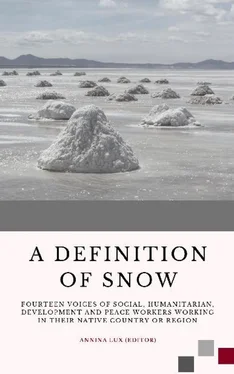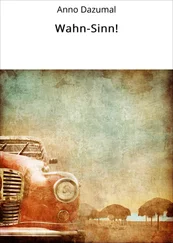As an official of a public state institution, you can certainly see that the hardest work is doing the paperwork and writing, writing, writing. It’s very bureaucratic. You lose a lot of time filling out papers, instead of attending patients. The time you waste filling in forms for supplementary exams and medication and the entire clinical history by hand! Working like this for 24 hours for this number of patients is exhausting. Your energy lasts very well for eight hours working without break, but after eight hours you start to feel physical exhaustion and weakening, sometimes dizziness.
Sometimes, very aggressive people come to A & E; they enter shouting and treat us in a degrading way. They are thoughtless because they do not respect the visiting hours of the hospital. They don’t care that a doctor has biological necessities like eating. Sometimes so many people show up that you have to contain yourself not to urinate for five or sometimes six hours. Or they show up just at lunch time. It seems to me that this happens because of the lack of information, or because they do not want to take a ticket for a medical consultation. They don’t understand that doctors are attending emergencies like pregnant patients who arrive at unpredictable times and need our full attention. They threaten to denounce you to the press. Here there is a radio station which works without any ethics. Certain hysterical people denounce doctors for everything and nothing because they do not know that it is neither an emergency nor urgent. So this media source condemns the work of doctors, making unrealistic comparisons between working in health care and working in the press sector – in a hospital, you work with people, to save human lives. Everything is ‘medical negligence’ for people who are neither informed nor know the significance of that word. For example patients suffering from in-growing finger- or toenails for two weeks or sometimes months come to A & E and see that you are treating decompensated patients, patients in hypertensive crisis, patients with heart attacks, snake bites etc., and then shout at you and tell you that if you will not treat them, they will denounce you. They go to the radio to say that the emergency doctors did not want to attend them, that they refused to treat them. The actions of foolish people are incredible.
The mistake made by the press is not to search for and inquire carefully about the correct and truthful information, not false, unscrupulous and corrupt information. In Bolivia there is a law against medical negligence. But there is no law protecting health care workers. I ask myself where the law is against the parents who allow the illness of their children or family members to advance, from a cough to pneumonia, or serious cases of diarrhoea, for a week, and come into A & E when the children are about to die at three a.m. and expect the health care staff to work miracles, and then accuse them of medical negligence, saying that it is their fault the patient died.
I continued to work as the head of A & E until 2015. The position brought with it a lot of responsibility and became very stressful when I was also put in charge of the departmental health and social security programme in August 2014. This is a free social-security programme organised in one departamento of Bolivia for those between 5 and 59 years of age not able to afford health insurance or pay for hospitalisation. It covers hospitalisation and inpatient treatment, both of which are expensive and compromise a family’s savings and livelihood, especially in rural areas, because these families cannot count on economic resources or income. Thanks to this brilliant and very important departmental programme, these people can still receive treatment. I consider it a blessing for the people benefitting from it. The government supports the municipality in this way because of the surplus money made by taxes on the hydrocarbons like gas and petroleum found in the region. My responsibility is to explain to patients without medical insurance how to access the programme. So I ascertain meticulously that the person in question does not have any medical insurance, so that they can benefit from the programme. To do this, every day I have to visit each room, bed by bed, in all the different wards, to see whether patients fall into the age bracket of 5 to 59 years to enrol them in the program. For this, I have to make sure that all of those patients have some documentation identifying them. This is often difficult, as not all patients have such documentation, and many do not remember to bring it when travelling from faraway villages to the hospital. Aside from that, I also have to work with those registered, and see to it that the patient is treated adequately.
From August 2014 until today I brought in more than 200,000 Bolivianos 11to cover the beneficiaries’ medical costs. It gives me so much joy to see this marvellous help for those who need it most. But I am on my own here in the hospital, as there are no social workers, so I have to register all eligible patients, doing the work of a social worker as well as my job as a doctor. It is difficult and delicate to manage the programme, as they named me as the person responsible without training me to do the job. When I first started, I only learnt how to manage the programme through reading the manual detailing the functioning of the programme, having to call my supervisor in the city if I had doubts. Now I know the programme well, so I feel more comfortable with this responsibility, which I really like and feel affection for. Aside from visiting communities to spread information on the programme, I also visit radio stations so that people can hear about the programme and benefit from it. Many times I have clashed with the previous and the current Directors of the hospital, and also colleagues, because they believe that I am not doing anything, when this programme is actually the one bringing most economic resources to the municipality. People are very happy about this programme, because every family benefitting from it saves more than 3,000 and sometimes up to to 5,000 or 10,000 Bolivianos 12. That makes me very happy. Really, the department is very generous in helping seriously sick or injured patients, including people suffering from cancer, where they have covered treatments with chemotherapy.
However, on top of working in A & E for six 24-hour shifts each month, I find it very hard to really deal with the programme, especially since I should also be working on patient transport in the ambulances. But I don’t usually travel with the ambulances, because I suffer from allergies, and have also recently been diagnosed with chronic bronchiectasis. Often, this angers my colleagues; they don’t understand that dealing with a programme of this size is a huge responsibility. They don’t value the fact that they are healthy, and that it is important to take care of yourself and your health very well. The stress has made me ill, as I can neither take days off to rest nor take holidays. I do not understand why it is like this in Bolivia. Here, doctors are not valued or respected at all – we do 24-hour shifts without any sleep. I can confirm from my own experience that stress makes you ill; it’s inhuman and unhealthy.
I remember beautiful moments too, however. One was when we, my colleagues and I, went to the local radio station to share and discuss highly important topics such as domestic violence. In our programme, we analysed some songs, like the song ‘Rata de dos patas’ 13by Paquita la del Barrio. Like many Reguéton songs, it touched on the topic of alcoholism, something we discussed, and in particular how much damage that can cause to a family. I remember my colleague and friend also brought a song about domestic violence against children once, ‘Luka’ by Suzanne Vega, which had been translated into Spanish. The programme had an effect on violence against children, because the radio station carried out campaigns against violence every time, which was good for the people listening. For the most part, the people committing this type of violence are unemployed or mentally ill people who should have some occupational activity. We covered all these different topics in the programme. The programme turned out to be very interesting for the people living in the communities. When they came to the hospital and heard my voice, they asked me why we did not do more of this programme. They said that they stay up late on Monday, Tuesday and Wednesday, just to listen to the programme from seven to nine p.m. Very beautiful! They also recognised my colleague’s voice. They always told me they were listening to the ‘gringa’s’ voice.
Читать дальше




![Serg Aill&Lex Lux - Идефикс. Жажда силы [СИ]](/books/422633/serg-aill-lex-lux-idefiks-zhazhda-sily-si-thumb.webp)







